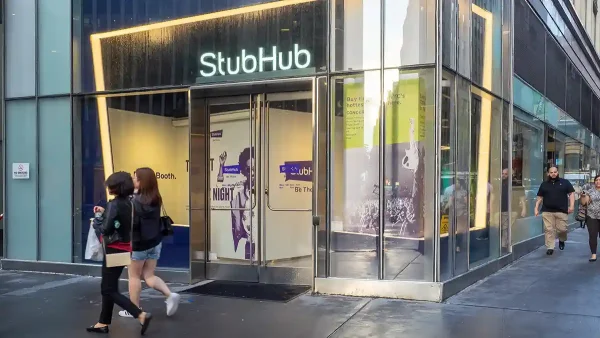Paperless ticketing bill approved by Connecticut legislative committee
Members of the Connecticut General Assembly General Law Committee overwhelmingly approved a proposed bill Tuesday, March 15, designed to help consumers by preserving the secondary ticket market and giving buyers the option of purchasing transferable paperless or traditional hard copy tickets.
The move marks the second time this month that a state legislative committee voted in favor of a bill to regulate paperless tickets, following similar action by a Minnesota legislative committee. The Connecticut committee voted 16-2 in favor of HB6298, which sends the bill to the state House floor for further action; the current General Assembly session is scheduled to end June 8, but when the bill will receive a reading on the House floor has not been determined. In addition, the House may decide to send it back to committee for further work.
In fact, the prospects of the House sending it back to committee are reasonably good because several of the General Law Committee members who voted in favor of the bill called it “a work in progress,” and would like to see language added to ban the use of software “bots” to procure event tickets. Such computer programs, which can bypass internet security protocols to surreptitiously snap up large blocks of tickets in seconds, already have been outlawed in other states.
The proposed Connecticut bill states, in part:
No person shall deny access to an entertainment event to a ticket holder who possesses a resold ticket to such entertainment event based solely on the grounds that such ticket has been resold.
No person shall employ a ticketing sales system that fails to give the purchaser an option to purchase tickets that the purchaser may transfer to any party, at any price and at any time, without additional fees and without the consent of the person employing such ticketing system.
No operator of a place of entertainment or such operator’s agent shall require the purchaser of a ticket to an entertainment event to choose ‘will call’ as the purchaser’s only ticket delivery option or otherwise restrict such purchaser’s ability to pick up tickets from a box office or will call window in advance of such event. Nothing in this section shall prohibit such operator or agent from requiring a ticket purchaser to pick up tickets during a box office’s normal business hours.
General Law Committee members added language to exempt 501(c)(3) organizations that sell tickets and venues that hold fewer than 3,000 people. In addition, the committee stripped language from the bill that would have required transparency in the number of tickets made available for an event by limiting the number of withheld tickets to 5 percent. State venues that argued against the proposed legislation said requiring such disclosures could tie the hands of promoters who withhold tickets for various legitimate reasons.
Opponents of the bill also argued that requiring transferable paperless tickets could entice some acts to bypass Connecticut to avoid such legislation. However, adjacent New York, which last year passed a law that requires ticket issuers that want to use paperless tickets to either use a transferable version, or make a traditional paper version available at checkout, has not seen a decline in major shows in the state.






